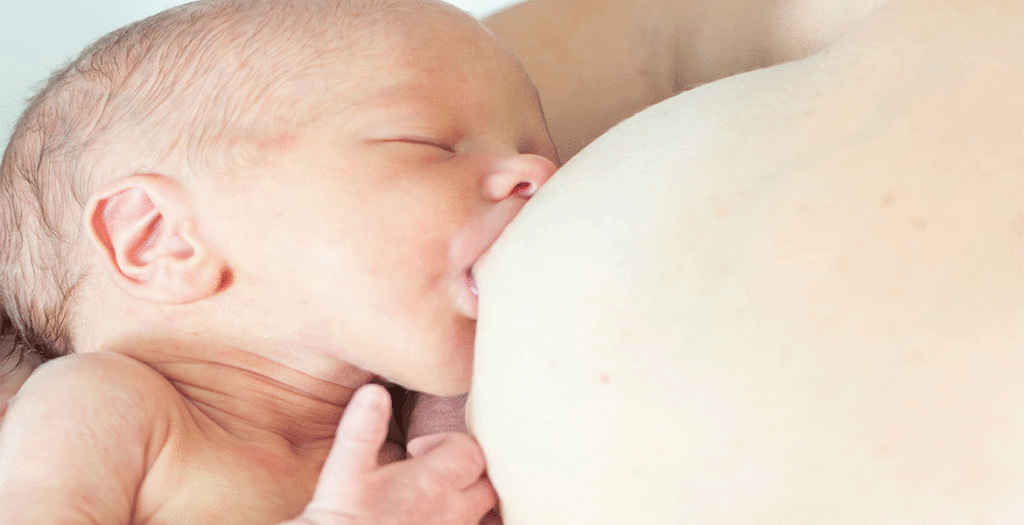
The first hour with your newborn is called the golden hour and is the time for you to bond with your baby, skin to skin
The hour after the birth of your baby is incredibly important. It is a time that you can never repeat and it can make a huge difference to how you and your partner bond with your baby, establish breastfeeding and start your new life together as a family.
In the past, midwives and doctors would take a baby from its mother almost immediately after it was born to weigh, measure and check it.
Now, many understand that this is a critical time for both mother and baby and are happy to delay these checks.
 The first hour should be sacrosanct for mother and baby to bond, skin-to-skin, and to try for a first feed. Unless there is a medical need for the mother or baby to have an intervention, it should be possible for all to enjoy this precious time, whether your baby has been born normally or via Caesarean. Here’s how to make the most of the time when you first meet the new love of your life.
The first hour should be sacrosanct for mother and baby to bond, skin-to-skin, and to try for a first feed. Unless there is a medical need for the mother or baby to have an intervention, it should be possible for all to enjoy this precious time, whether your baby has been born normally or via Caesarean. Here’s how to make the most of the time when you first meet the new love of your life.
After the birth
Once your baby has been born, he or she should be passed up to you and laid on your chest, tummy down.
A warm blanket can then be placed over you both to keep you warm. This helps slow down the production of the hormone adrenaline, which could impair the production of oxytocin and prolactin which are crucial for bonding with your baby and beginning the impulse to breastfeed.
As you have yet to deliver the placenta, you are still giving birth, so this time should be calm and quiet. Your uterus also needs to start contracting – though this can take up to a couple of weeks to contract fully.
An undisturbed first hour should allow
- Your baby to initiate breastfeeding: this helps the uterus contract to expel the placenta. A midwife may help you with getting your baby to latch on, though many babies if left undisturbed will crawl up to their mother’s nipple. This amazing natural instinct, the ‘breast crawl’, was rst documented by Swedish researchers in the 1980s.
- Your baby to regulate its body temperature: a baby placed skin to skin with its mother will be better able to regulate its temperature. Your baby has just come from a totally temperature controlled environment and now needs to learn to do this for himself. If babies lose too much heat too quickly, they use up valuable oxygen and energy.
- Cord clamping can be delayed: many health professionals now leave the cord to stop pulsing before cutting it, allowing all the blood and oxygen in it to pump into your baby. This can prevent anaemia. This may be possible even with a Caesarean.
- Helps with mother and baby bonding: this special time allows you to get to know your baby. You have oxytocin receptors in your brain that increase during pregnancy to foster maternal instincts. This hormone is produced in large amounts when you hold your baby against your skin and when you breastfeed too.
How can you ensure a golden hour with your baby?
Talk to your midwife or doctor about your wishes for a quiet time alone (or with minimal other people in the room) for that special time after birth and talk to them about delayed cord clamping too. See if you can have the room made calm and quiet, with dim lighting for a peaceful environment.
Child birth from your baby’s perspective
Your baby has just spent nine months in a calm, comfortable and completely enclosed environment, with calming white noise and the sounds of its mother’s voice and heartbeat. Coming from that cosy place into a brash, bright delivery room with loud voices and unfamiliar smells and sounds can be traumatic for your baby. Babies have all the same emotions that adults do – they feel pain, loneliness and they can feel insecure – but they are unable to let us know how they are feeling. Having a delivery room that’s calm and restful can be as important for your baby as it is for you, so try to ensure it is dimly lit, perhaps with relaxing music and that there are as few people as necessary to make you and baby feel secure.
